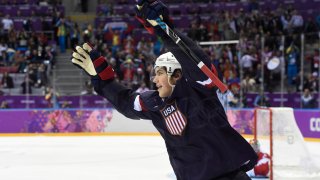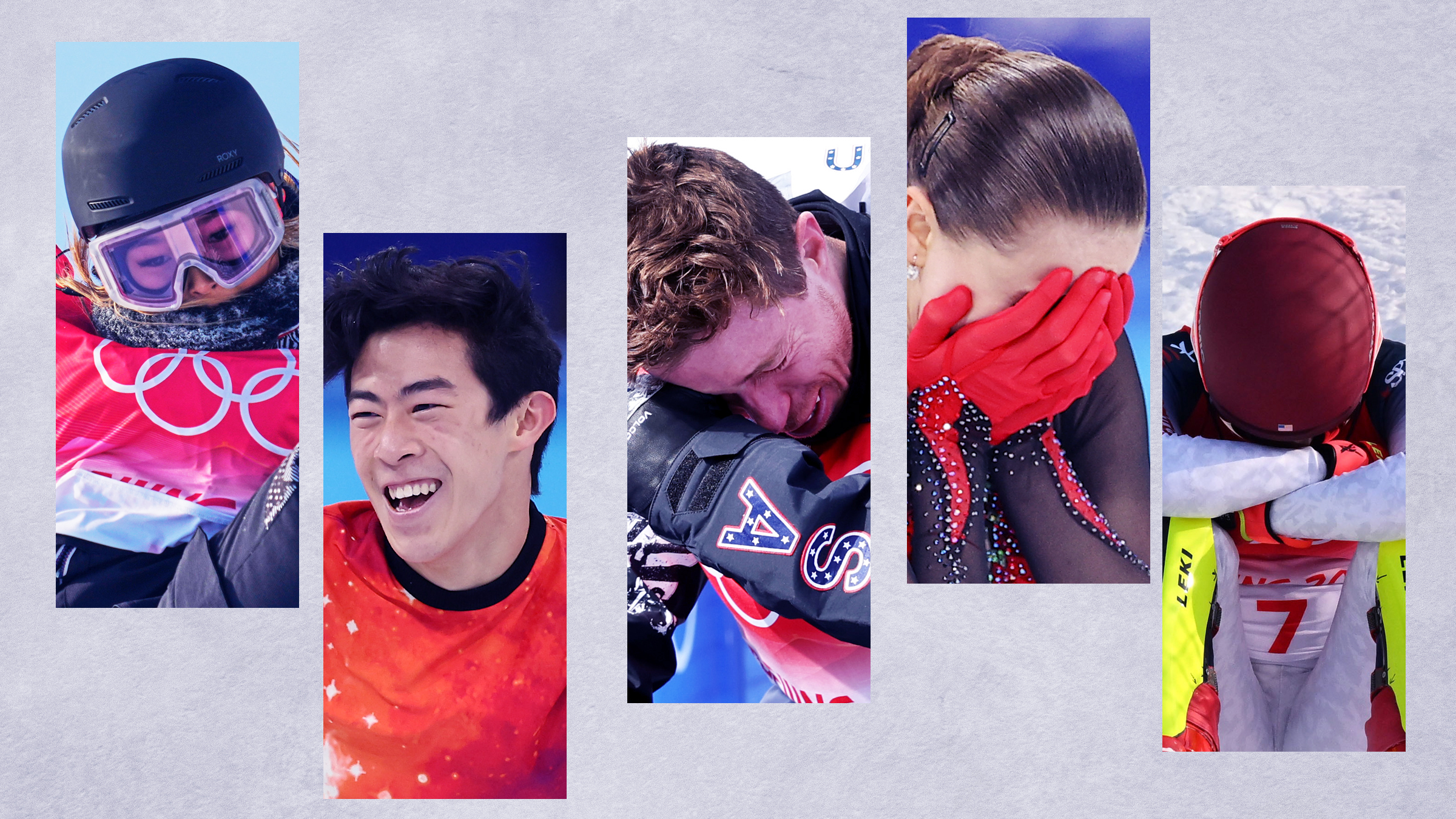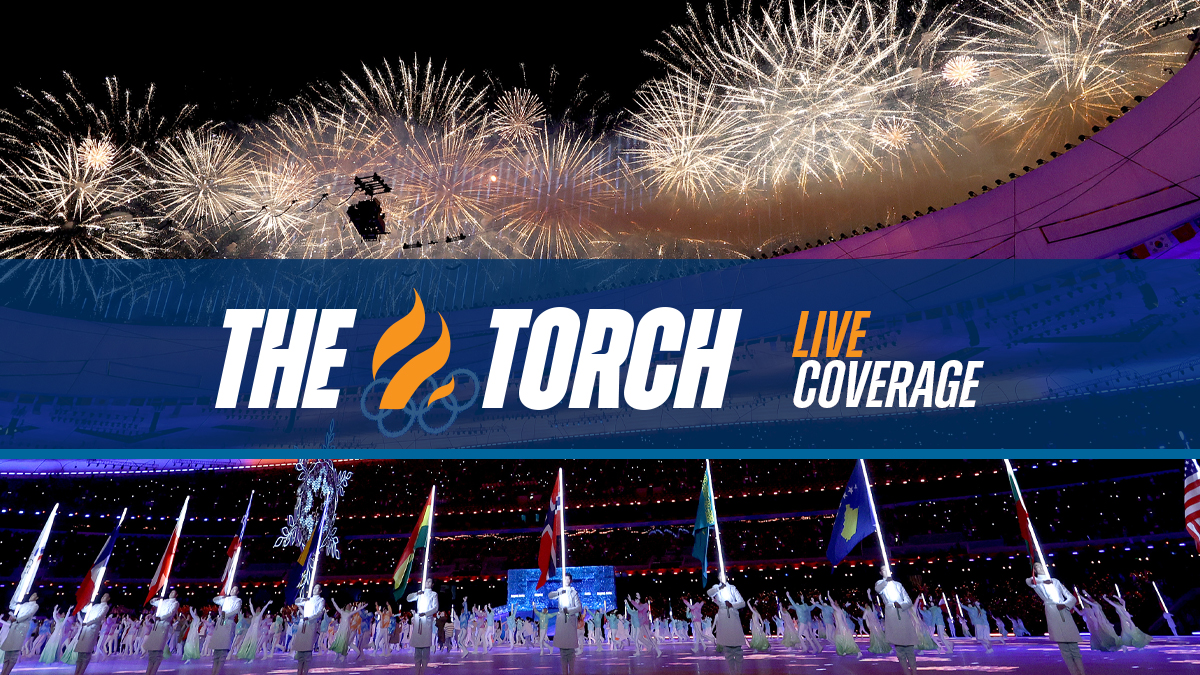
There won’t be any NHL players at the 2022 Winter Olympics and while the decision to have them not participate is disappointing, it’s certainly not uncharted territory.
In fact, a majority of ice hockey competitions in Olympic history have not involved NHL players. When ice hockey started at the Games, it was intended for amateur players and it remained that way for many years.
Here is a look at the history of the NHL and the Olympics.
When did the NHL begin sending its players to the Olympics?
We're making it easier for you to find stories that matter with our new newsletter — The 4Front. Sign up here and get news that is important for you to your inbox.
The NHL’s involvement in the Olympics is a fairly recent development given the Games’ extensive history.
While ice hockey first debuted at the Olympics in 1920, it wasn’t until 1986 that the International Olympic Committee voted to allow professional athletes to participate. So even if the NHL wanted to have its players compete at the Games prior to 1986, it wasn’t permitted.
Once the IOC did allow for professional athletes, it took a few years before the NHL decided to send its players. The league was hesitant at first given the fact that the Olympics took place in the middle of the NHL season, meaning there would need to be a break in the season for a couple weeks in order to accommodate the Olympic schedule.
Beijing 2022 Winter Olympics
Watch all the action from the Beijing Olympics live on NBC
But in 1995, the NHL and NHLPA agreed to give the Olympics a go. What was originally just a trial run of NHL player involvement at the 1998 Games in Nagano, Japan, turned out to be a success and resulted in five consecutive Olympics with NHL participation.
Who played during the Olympics before the NHL started sending its players?
Before the IOC’s decision to allow professional athletes at the Games, ice hockey competition featured players who were either on their way up to the professional ranks or those who weren’t quite good enough to make it.
The issue with that was in Eastern Europe, countries like the then-USSR began to train people into becoming “full-time amateur athletes.” While they may have been students or soldiers, in reality, they were training in hockey on a full-time basis.
It’s what made the United States’ upset over the USSR at the 1980 Lake Placid Olympics so, well, miraculous. On one side was the USSR and their “Red Army,” a team that was training year-round to be the best hockey squad in the world and had won five of the past six gold medals. And on the other was a U.S. team full of mostly college kids and a handful of players with minor league experience.
Despite being the youngest team in the tournament, the U.S. pulled off the “Miracle on Ice,” taking down the great USSR team 4-2 in the semifinals on their way to a gold medal.
When was the last time the NHL did not send its players to the Olympics?
The 2022 Olympics marks the second straight Winter Games without the best players in the world competing in men’s ice hockey.
While COVID-19 and its effect on the 2021-22 regular season were the main factors in the NHL deciding to not send its players to Beijing, that was not the case for the last Olympics.
For the 2018 Games, the NHL opted to not send its players due to travel costs and scheduling issues. The IOC had agreed to cover the cost of travel, insurance and accommodations, among other things, for past Olympics.
However, the IOC decided against covering those expenses for the Pyeongchang Olympics, a decision that resulted in the NHL pulling out of the Games.
Who played for the U.S. in 2018 when the NHL didn’t send its players?
With no NHL support, the U.S. national team needed to look elsewhere for talent to fill its 2018 Olympic roster.
A majority of the players who joined Team USA in 2018 were playing overseas at the time, such as ex-NHLers Matt Gilroy, Noah Welch, James Wisniewski and Jonathan Blum.
Team USA also poached players such as Chris Bourque and Bobby Butler from the NHL’s minor league, the American Hockey League (AHL). Since those players did not belong to the NHL, they qualified for selection.
Four players also came from the college ranks. Jordan Greenway, Troy Terry, Ryan Donato and Will Borgen -- all current NHLers -- elected to leave their college teams to play in Pyeongchang.
And finally, any free agents were eligible to join, which is how Brian Gionta ended up on the roster. The ex-NHL star was named captain of the 2018 U.S. Olympic team, and even signed an NHL contract with the Boston Bruins after the Winter Olympics.
The 2018 team underwhelmed in PyeongChang, finishing seventh after losing to the Czech Republic in the quarterfinals.
These same qualifications for selection, in addition to players in junior hockey, will be how all countries will have to field their rosters for 2022.




